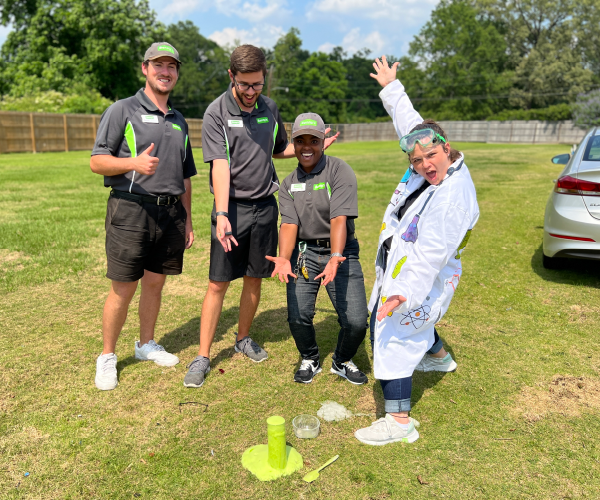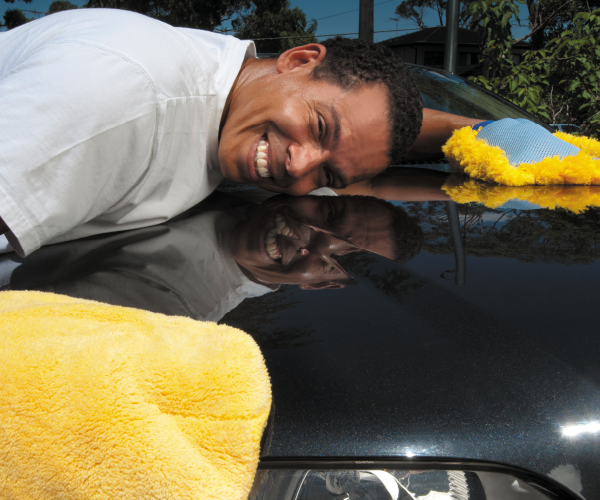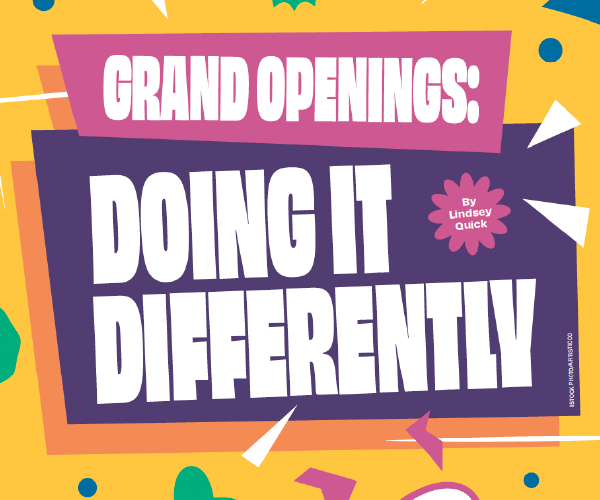
Unleashing your inner sales
September 26, 2017
6 minute ReadIn looking for a quick way to summarize his bestselling book “To Sell is Human,” author Daniel H. Pink found that one of America’s most celebrated playwrights had actually said it best almost seven decades ago. The book’s introductory quote, from Arthur Miller’s famed 1949 play “Death of a Salesman,” truly sums it up: “The only thing you got in this world is what you can sell. And the funny thing is, you’re a salesman, and you don’t know that.”
Yes, whether you’re trying to convince a car wash customer to sign up for a loyalty program, imploring your child to brush his or her teeth before bed or even just asking a reader to keep reading this article, you’re in sales every day of your life because you’re asking someone to part with a resource, usually either money or time.
And both are truly precious.
In his book, Pink argues that most salespeople today have traded in their briefcase full of product samples for a smartphone, but the task remains the same — getting others to buy what they’re selling. According to a first-of-its-kind study featured in the book, the average employee spends 40 percent of his time spurring others to act in some way — by persuading, convincing or influencing.
Movie buffs will remember Alec Baldwin’s unforgettable speech in “Glengarry Glen Ross,” in which he reminds a grizzled room of salesmen about the mnemonic “ABC — Always Be Closing.” Pink believes in the same acronym for sales but turns it on its head: Attunement (bringing yourself into harmony with individuals, groups and contexts), Buoyancy (a quality that combines grittiness of spirit and a sunny outlook) and Clarity (the capacity to make sense of murky situations).
If employees can master these three abilities, Pink argues, then they will prove far more effective at selling than the stereotypically glad-handing and slick-talking salesman.
Attunement
Pink argues that attunement — the ability to bring one’s actions and outlook into harmony with other people and with the context you’re in — is often overlooked by salespeople and frontline employees. They often feel that in order to sell, the most important thing to do is execute their pitch, when in reality, paying attention to customers’ words and nonverbal cues is paramount.
Pink cites what sociologists call “the chameleon effect,” where people tend to develop a sense of trust with people who speak like them and use the same mannerisms. He points to a Dutch study that found that waitresses who repeated their diners’ orders back to them word for word earned 70 percent more in tips than waitresses who paraphrased, and diners with waitresses who repeated their orders said they were more satisfied with their dining experience.
In a French study, half of a group of retail salespeople was told to subtly mimic their customers’ speech patterns and body language, and half was told not to. The study found that 79 percent of customers who approached the mimicking salespeople bought products, while 62 percent bought from the control group.
The key, however, is to be understated in your mimicry. If it is obvious and customers notice it, it will be extremely off-putting and will totally backfire, Pink says.
Buoyancy
There’s simply no denying it: Being in sales is a tough way to make a living. And that’s true of car wash employees too, even though they aren’t working on commission. Ten customers in a row might choose not to upgrade their wash, enroll in a loyalty program or purchase car-related product offerings, and yet it’s vital that frontline employees still approach that next customer with an upbeat, positive attitude.
Pink argues that although being told “no” day in and day out can wear on employees, it’s imperative that they remain optimistic. He cites a study done by the Metropolitan Life Insurance Co. that required sales agents to fill out questionnaires to determine where they fell on the optimism-pessimism spectrum.
Researchers tracked the agents’ performance over the next two years and found that those in the most optimistic half of the group had sold 37 percent more policies than those in the most pessimistic half, and those in the top 10 percent of the optimism spectrum sold 88 percent more policies than those in the most pessimistic 10 percent.
Telemarketers often are told to smile while on the phone, with the belief being that even though the people on the other end of the line can’t see them, they can feel their positivity. In sales, as in much of life, a warm smile goes a long way, and simply reminding your frontline employees to be positive in the face of negativity can yield great results.
Clarity
Legendary comedian George Carlin once pointed out that his most important skill is reminding the audience of things they already know but presenting them in ways they hadn’t thought about. In essence, Carlin was clarifying things for his fans — helping others to see their situation in fresh, revealing ways. But don’t worry, you don’t have to be as funny as Carlin to clarify things for our customers.
Pink says frontline employees should ask customers an open-ended question that will get them to think about their motivation — the thing that brought them to your car wash in the first place. For example, an employee might ask, “What made you select our premium wash option today?”
Many customers will be taken aback by this seemingly self-explanatory question. After all, the premium wash is better and more thorough. But by getting the customer to actually verbalize the reason — that he gets a sense of satisfaction from having a resplendent car — you’ve clarified what drives him and have created an easy way to speak with him about enrolling in your loyalty program. Wouldn’t he always like to have his car looking so good?
Pink also says that while having options is good, there is such a thing as too many options. He cites an experiment in which a grocery store put out samples of 24 flavors of jam, and only 3 percent of the samplers ended up buying jam. The next day, the store put out six flavors, and 30 percent of the samplers purchased jam. What accounts for the marked difference?
In the first case, customers were overwhelmed by the possibilities. Customers had a sense that since they’ll likely never get a chance to bring all 24 of those flavors home, surely they’ll be missing out on something by selecting any one or two flavors. What if they miss out on the best one?
By limiting customers to a few select car wash options and car-related product offerings, car washes help customers to clarify exactly what it is that they want and settle on one option.
In a similar vein, frontline employees shouldn’t point to the many car-related products on offer and say, “Would you like to add on any of these great products?” Why would a busy customer take the time to look at all of them when it’s so much easier just to say no? Rather, give customers a simple choice: “Would you like to purchase a gift card or an air freshener?” Better yet, recognize a need, and suggest a solution.
Pink says frontline employees also should use “the contrast principle” because we often understand something better when we see it in comparison with something else than when we see it in isolation. Rather than just describing the benefits of a premium wash package, an employee could say something like, “Our basic package is great because it features these services… but our premium package is so much better because you also get these services …”
“Like it or not, we’re all in sales,” Pink writes. “And the truth is that when you tell people that, a lot of people don’t like it at all. They have this association that sales is sleazy, slimy, smarmy and all those other great words that we use to describe it. My view is that that’s a very outdated view of sales. The way to do it better and more ethically is the new ABC — Attunement, Buoyancy and Clarity.”








